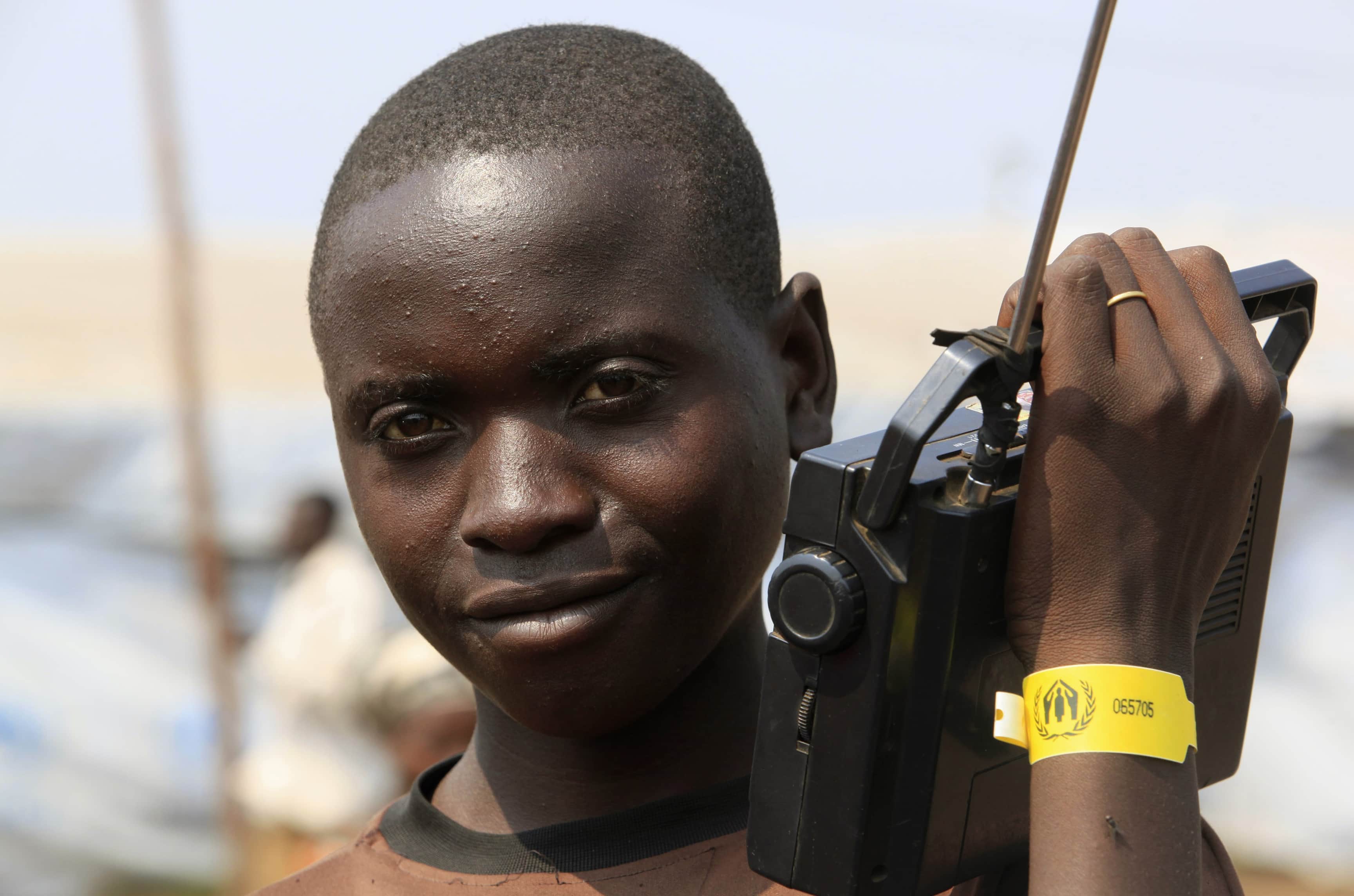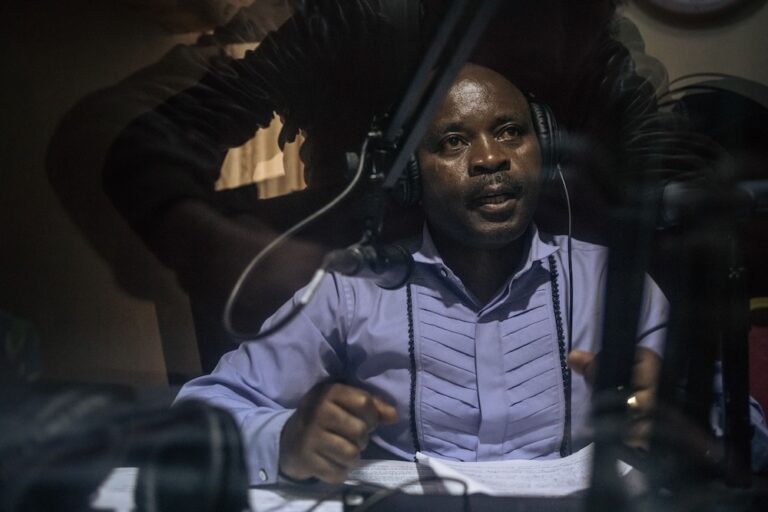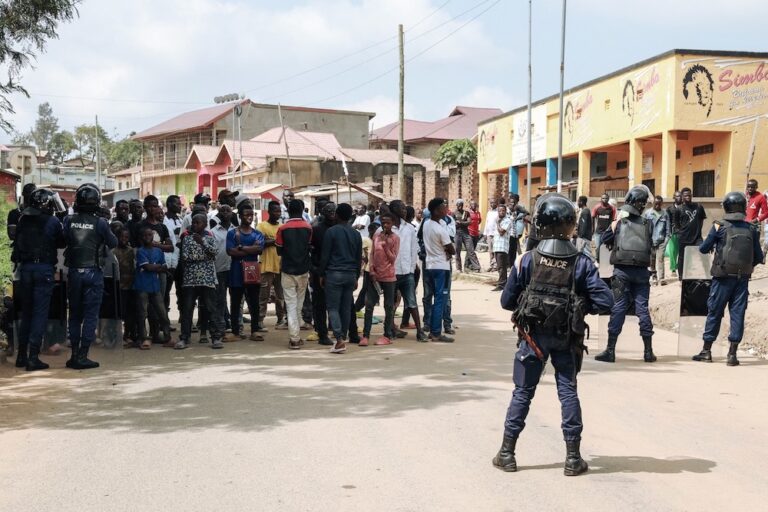Ten years after radio journalist Serge Maheshe's murder in the Democratic Republic of Congo, the real perpetrators and instigators have yet to be arrested.
This statement was originally published on rsf.org on 13 June 2017.
Ten years after radio journalist Serge Maheshe’s murder in the Democratic Republic of Congo, the real perpetrators and instigators have yet to be arrested. The information gathered by Reporters Without Borders (RSF) confirms not only that the authorities did nothing to solve the murder but also that the Congolese military hierarchy was involved.
Serge Maheshe was gunned down on the evening of 13 June 2007 by two men in civilian dress armed with Kalashnikovs on a street in Bukavu, the capital of the eastern province of Sud-Kivu, where he ran the local branch of Radio Okapi, a radio station operated jointly by Switzerland’s Fondation Hirondelle and the UN Mission in Democratic Republic of Congo (MONUC).
A military court sentenced three individuals to death at the end of a sham trial in which the defence lawyers received death threats. The trial was condemned in a report by the Office of the UN High Commission for Human Rights and even the court acknowledged that aspects of the case were left unclarified.
Nine years after the end of the trial, an RSF interview with a former Congolese army officer, Gabriel Maindo, has revealed that the judicial investigation completely ignored a lead that would have identified those behind Maheshe’s murder.
Maindo confirmed to RSF what he first claimed in May 2015, namely that an officer identified as Pacifique K. had confessed to him that he and two other officers were responsible for Maheshe’s murder. These two officers were among those who were initially arrested in the investigation but were released without charge.
Pacifique K. named Gen. Gabriel Amisi, also known as “Tango Fort,” the then commander of the 10th military region (Sud-Kivu), and Col. Thierry Illunga as the instigators of Maheshe’s murder. Gen. Amisi and Col. Illunga were upset by Maheshe’s coverage of the atrocities by their soldiers against civilians during and after the 1998 war, he said.
Despite these revelations, originally made more than two years ago, the Congolese authorities have taken no steps to prosecute or even question these three suspects. Far from being arrested, the officer who confessed to Maindo has since been promoted in the intelligence services, while Gen. Amisi has been appointed commander of the Kinshasa military region although accused by the UN of arms trafficking.
This impunity has implications for the safety of other journalists. Just a few months after the appeal court ruling in the Maheshe case, another Radio Okapi journalist, Didace Namujimbo, was murdered.
The Namujimbo trial took more than a year to be organized and the alleged perpetrators managed to “escape” from Bukavu prison within days of them finally being arrested. Several years later, an army officer told Namujimbo’s brother that he had been ordered to “wrap up” the Maheshe and Namujimbo cases.
“We call on the authorities to reopen the investigation into Serge Maheshe’s murder in order to establish what really happened,” RSF said. “The Maheshe and Namujimbo trials, which were attended by international observers, showed how arbitrary justice can be in the DRC and fuelled concern about investigations into attacks on journalists who have no support.”
For example, there has never been any investigation into the murder of Bruno Koko Chirambiza, a presenter on Radio Star, a privately-owned radio station in Bukavu, who was stabbed to death on 23 August 2009.
Three women journalists – including Solange Lusiku, the editor of Sud-Kivu’s only newspaper, Le Souverain – were the targets of very serious threats the same year without any action being taken by the police.
The situation has worsened steadily for the past ten years in the DRC, where RSF has registered more than 10 murders of journalists since 2007 without convincing trials and convictions in any of these cases. The DRC is ranked 154th out of 180 countries in RSF’s 2017 World Press Freedom Index.



